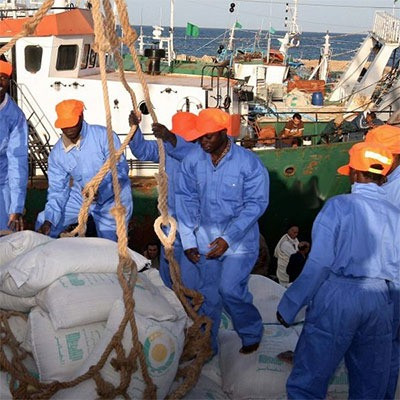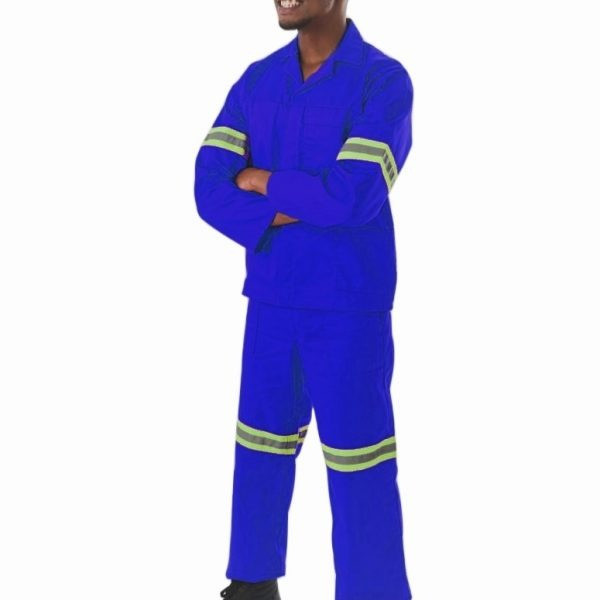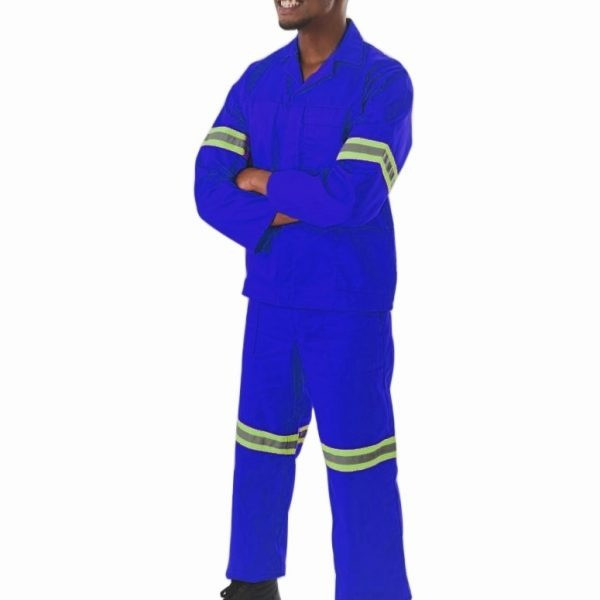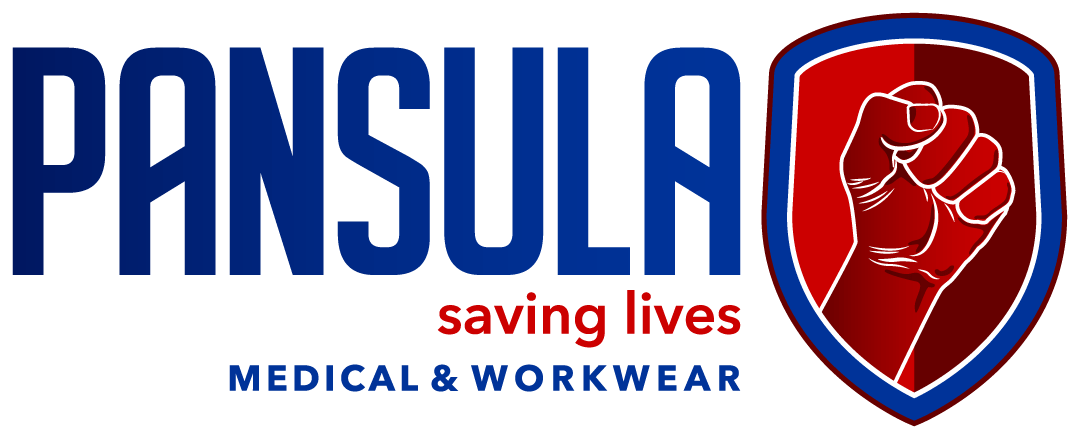Workwear Manufacturer South Africa: What to Expect from Quality-Driven Local Suppliers

Workwear Manufacturer South Africa: A Growing Sector Supporting Safety and Productivity
In an economy increasingly dependent on infrastructure, logistics, construction, manufacturing, and healthcare, the role of a reliable workwear manufacturer in South Africa has never been more critical. For organisations operating in demanding environments, safety, comfort, durability, and compliance are non-negotiable.
With growing scrutiny around PPE standards, rising demand for local manufacturing, and tightening regulations across Pretoria, Gauteng, and wider South Africa, it’s essential that businesses understand what to look for in a professional workwear supplier.
This press release serves as a guide to key expectations, including material specifications, quality control, SABS and ISO compliance, and the broader economic benefits of supporting domestic production.
In recent years, the global supply chain has faced unpredictable disruptions, making locally produced workwear a strategic priority for South African industries. Businesses are also rethinking their sustainability commitments and opting for manufacturers who can provide both compliance and traceability. Quality workwear is not just a line item on a procurement list—it is an investment in employee safety, brand reputation, and operational excellence.
The Role of a Trusted Workwear Manufacturer South Africa in High-Risk Industries
Workwear is not just clothing—it is personal protection, team identity, and a productivity tool rolled into one. In industrial sectors where risk is ever-present, professional-grade garments help to:
Prevent injuries and fatalities
Improve morale through comfort and fit
Reinforce organisational branding
Maintain regulatory compliance
Withstand daily wear-and-tear in rugged environments
A credible workwear manufacturer in South Africa offers garments designed with real-world conditions in mind—from factory floors to remote agricultural sites, chemical labs to security patrols.
PPE Standards: What Businesses Should Know Before Choosing a Supplier
Before purchasing uniforms or PPE, organisations should ensure that their supplier adheres to relevant PPE standards. In South Africa, this includes both national and international benchmarks.
In addition to compliance, businesses should evaluate how well a manufacturer can adapt these standards to unique operational requirements. For instance, a mining site in Limpopo may demand flame-resistant materials and reinforced stitching, whereas a logistics warehouse in Pretoria might prioritise breathability, high-visibility trims, and anti-static performance. By selecting a supplier with proven experience in meeting sector-specific needs, organisations can safeguard their teams without compromising on comfort or mobility.
It is also important to verify the manufacturer’s documentation trail. Certificates should be up to date, traceable, and relevant to the product in question. Manufacturers should demonstrate an understanding of changes in regulation and how those changes are implemented in real production.
1. SABS Certification
The South African Bureau of Standards (SABS) outlines performance requirements for high-visibility clothing, flame retardancy, chemical resistance, anti-static materials, and more. Products certified by SABS indicate a commitment to quality and compliance.
Employers should verify that:
Protective garments meet SANS 434 for general clothing
High-visibility garments meet SANS 50471 or equivalent
Flame-resistant materials comply with SANS 1423 or EN ISO 11612
2. ISO Compliance
Reputable manufacturers also build their systems around ISO 9001 (Quality Management) or ISO 14001 (Environmental Management) to ensure continuous improvement and responsible production.
In globalised supply chains and export-driven sectors, ISO-aligned processes offer peace of mind for cross-border clients and distributors.
3. Fit-for-Purpose Design
Beyond compliance, the best manufacturers design for function:
Reinforced seams and bar tacking on stress points
Breathable fabrics for high-heat environments
Ergonomic cuts for ease of movement
Adjustable waistbands and cuffs for personalisation
These features reflect a product that understands the jobsite—not just a catalogue.

Benefits of Choosing a Local Workwear Manufacturer in South Africa
Sourcing from a local workwear manufacturer South Africa delivers advantages that go far beyond convenience.
1. Faster Lead Times
Local manufacturers based in Pretoria, Gauteng, or other hubs can deliver orders in a fraction of the time compared to overseas suppliers. This agility helps businesses respond quickly to onboarding, expansion, or seasonal demand.
2. Economic Contribution
Purchasing from a local business supports job creation, small business growth, and reinvestment into the national economy. South Africa’s clothing and textile sector is a vital source of employment, particularly for women and rural communities.
3. Easier Customisation and Collaboration
Local production allows for:
Faster prototyping and sampling
Easier colour matching and embroidery for branding
Face-to-face consultation on sizing, features, or materials
For businesses seeking branded or function-specific uniforms, this proximity is invaluable.
4. Support for Local PPE Standards and Labour Laws
Local manufacturers are more likely to uphold South Africa’s labour regulations, including minimum wage and safety protections for factory workers—ensuring ethical sourcing alongside practical reliability.
What to Look For in a High-Quality Workwear Manufacturer in South Africa
Whether sourcing for mining crews, security personnel, or retail staff, buyers should assess prospective suppliers across five key areas:
1. Manufacturing Capacity and Scalability
Can the manufacturer handle both small batch and large-volume orders? Look for:
Multi-site production capabilities
In-house cutting and stitching (not subcontracted)
Scalable supply for seasonal peaks
2. Material Sourcing and Traceability
Check that fabrics are sourced from reputable mills and tested for:
Colourfastness
Abrasion resistance
Shrinkage and wash durability
UV protection
A transparent supply chain ensures confidence in fabric integrity.
3. Workmanship and Quality Control
Top-tier workwear manufacturers in South Africa implement strict QC at every stage—cutting, sewing, finishing, and packing. Ask for:
Inspection reports or process documentation
Sample garments to check finish
Warranty or returns policies for defective items
4. Industry-Specific Experience
Some manufacturers specialise in particular sectors. For instance:
Flame-retardant garments for petrochem
Medical scrubs and lab coats for healthcare
Reflective bibs for logistics and roadwork
Food industry jackets for hygiene compliance
Seek a partner with sector-specific expertise, not just general textile production.
5. Custom Branding and Packaging
From logo embroidery to colour-matching and personalised packaging, a quality supplier can turn basic workwear into brand-aligned teamwear.
Local production makes last-minute tweaks and on-site fit sessions possible—an advantage global supply chains cannot offer.
Pansula Workwear: A Leading Example of a Workwear Manufacturer in Pretoria, Gauteng
With facilities across South Africa and deep roots in Pretoria and Gauteng, Pansula Workwear exemplifies the standards outlined above. Their end-to-end service—from consultation and design to manufacturing and delivery—supports businesses across public and private sectors.
Pansula’s production network includes:
In-house cutting and stitching departments
On-site embroidery and branding
Dedicated quality control teams
A diverse workforce trained in compliance and safety
Their commitment to local manufacturing, paired with adherence to PPE standards and custom design flexibility, makes them a trusted supplier for clients throughout South Africa.
How to Vet a Workwear Manufacturer Before Signing a Contract
Before committing to a supplier relationship, buyers should:
Request sample garments for physical review
Ask for past client references, especially in the same industry
Visit the manufacturing facility, if local
Clarify delivery timelines and contingency plans
Review certifications (SABS, ISO, B-BBEE level)
A supplier unwilling to provide transparency may be unprepared to meet serious client expectations.
Safety Comes First: Why PPE Standards Cannot Be Overlooked
Failing to meet PPE standards puts businesses at risk of:
Workplace injuries and insurance claims
Legal liability under OHS Act
Reputational damage during audits or inspections
Choosing a certified workwear manufacturer in South Africa is not only a smart investment—it is a compliance obligation. Substandard gear may cost less upfront, but the consequences of failure are far more expensive.
The Future of Workwear Manufacturing in South Africa
As demand for safety gear, uniforms, and industrial clothing grows, so too will the need for modern, scalable workwear manufacturers in South Africa. Trends influencing the next generation of workwear include:
1. Eco-Friendly Materials
Recycled polyester, organic cotton, and biodegradable packaging are becoming popular with sustainability-focused clients.
2. Smart Fabrics
Moisture-wicking, anti-bacterial, and anti-odour technologies are increasingly requested in healthcare, security, and sportswear-style workwear.
3. Size Inclusivity
Manufacturers offering extended size ranges and gender-specific cuts will be more competitive in a diverse workforce.
4. Automation and Digital Production
Factories are integrating automated cutting tables, CAD design, and lean manufacturing to increase speed and reduce waste.
South African manufacturers able to adopt these innovations while upholding traditional quality benchmarks will lead the next wave of growth.

Prioritise Safety and Quality with the Right Workwear Partner
For businesses across South Africa, selecting the right workwear manufacturer is not just about procurement—it’s about protecting people, enhancing operations, and aligning with regulatory expectations.
From Pretoria to Gauteng, the manufacturing sector continues to prove that locally made PPE can meet world-class standards. With companies like Pansula Workwear leading the way, clients gain access to:
Certified, durable garments that meet SABS and ISO benchmarks, ensuring maximum protection for workers operating in challenging environments. These garments are built to withstand repetitive use, provide reliable coverage, and support compliance with South Africa's occupational health and safety regulations.
Ethical and fast production that supports local employment, reduces reliance on imports, and ensures fair labour practices across all manufacturing stages. Local facilities maintain quick turnaround times and agility in managing both large-scale and custom orders without compromising quality.
Industry-specific expertise in tailoring PPE and uniforms for sectors such as mining, logistics, security, healthcare, and food processing. Manufacturers understand the functional needs of each environment and integrate suitable materials, cuts, and finishes into every product.
Scalable supply for growth, offering production capacity that meets seasonal spikes, new branch openings, or sudden increases in headcount. Manufacturers are equipped to support long-term procurement strategies and adapt supply to meet evolving operational demands.
When evaluating your next workwear supplier, consider more than price. Evaluate fit, function, certification, and local impact. With the right manufacturer on your side, your team stays protected, professional, and performance-ready.





